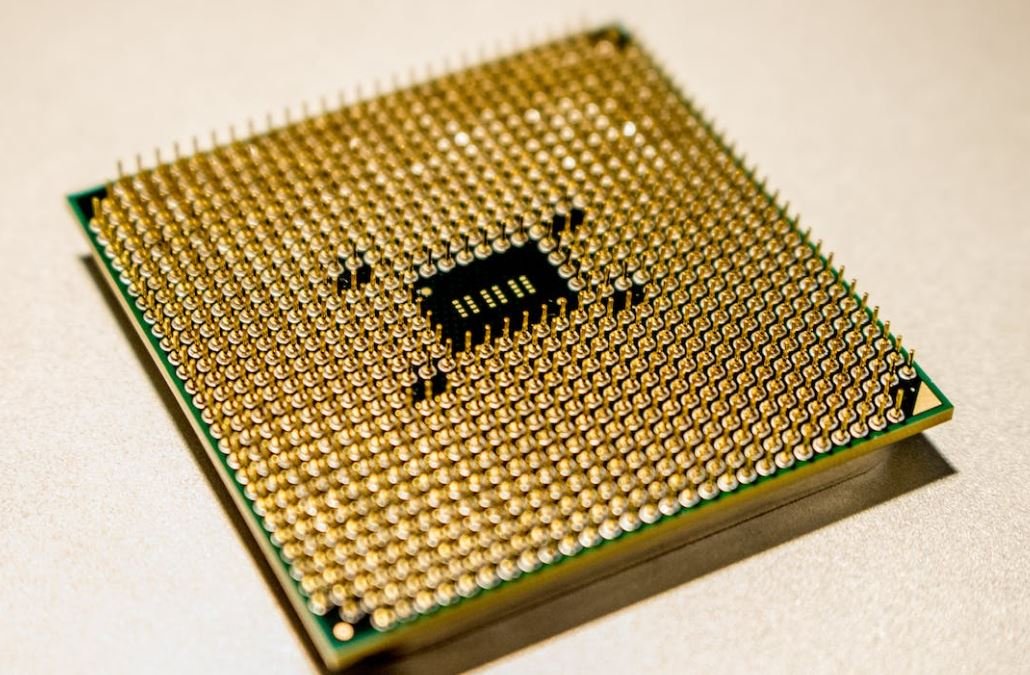GPT for Free
Introduction
With the rapid advancements in artificial intelligence, GPT (Generative Pre-trained Transformer) has become a prominent tool for natural language processing. GPT models have the ability to generate human-like text, making them valuable for various applications. However, many people are seeking free alternatives to access the power of GPT. In this article, we explore different ways to use GPT for free in your projects without compromising on quality.
Key Takeaways
- There are free alternatives available to access the power of GPT models.
- GPT models use artificial intelligence to generate human-like text.
- Using GPT for free can be advantageous for various projects.
Using OpenAI API
OpenAI, the organization behind GPT, launched a free tier of their API, which allows developers to use GPT for free up to a certain limit. By signing up for an API key, you can integrate GPT into your applications or projects. The free tier provides a great opportunity to explore the capabilities of GPT without any monetary cost.
**One interesting fact**: OpenAI constantly updates their models and fine-tunes them based on a vast amount of data, ensuring the results are more accurate and reliable.
Accessing Hugging Face Models
Hugging Face is a popular platform for accessing pre-trained models, including GPT. They provide a wide range of GPT models that you can use for free. By leveraging Hugging Face’s library and resources, you can incorporate GPT into your projects without incurring any expenses.
- Use Hugging Face’s “transformers” library for easy integration of GPT models.
- Utilize Hugging Face’s model hub to access pre-trained GPT models.
- Fine-tune pre-trained models to suit your specific use cases.
Training GPT from Scratch
If you have the necessary computational resources and expertise, training GPT models from scratch can be another cost-effective option. By following available resources and guidelines, you can create your own GPT models tailored to your needs. This approach requires time, effort, and infrastructure, but it provides full control over the training process and model outputs.
**Did you know?**: Training GPT from scratch involves leveraging large datasets and powerful hardware, such as GPUs or TPUs, to achieve optimal results.
Comparing GPT Alternatives
| Aspect | OpenAI API | Hugging Face Models | Training from Scratch |
|---|---|---|---|
| Cost | Free (with usage limits) | Free | Cost of computing resources |
| Accessibility | API integration required | Library integration | Expertise and infrastructure required |
| Customization | Restricted | Customizable pre-trained models | Highly customizable |
Conclusion
GPT models provide immense potential to enhance various applications and projects. By exploring free alternatives, such as OpenAI’s API, Hugging Face’s models, or training GPT from scratch, you can access the power of GPT without breaking the bank. Considering the cost, accessibility, and customization options, you can choose the approach that best suits your needs and resources.

Common Misconceptions
Misconception 1: GPT for Free is not as powerful as paid versions
One common misconception regarding GPT for Free is that it is not as powerful as its paid counterparts. However, this is not true and can be misleading. GPT for Free, although free of cost, offers similar capabilities and functionalities as the premium versions. It utilizes state-of-the-art natural language processing techniques to generate high-quality text content.
- GPT for Free provides access to vast language models.
- It can effectively generate coherent and contextually relevant text.
- Users can rely on GPT for Free to produce valuable content for various applications.
Misconception 2: GPT for Free lacks versatility
Another misconception surrounding GPT for Free is that it lacks versatility and is limited in its usage. However, this is an inaccurate assumption. GPT for Free is designed to be flexible and adaptable to a wide range of tasks and scenarios. Whether it’s generating creative writing, answering questions, or suggesting ideas, GPT for Free has proven to be versatile and resourceful.
- GPT for Free can assist in content writing across different domains and industries.
- It can adapt to various writing styles and tones, catering to specific content requirements.
- GPT for Free can handle diverse types of prompts, maximizing its usability.
Misconception 3: GPT for Free is not reliable
One common misconception related to GPT for Free is that it is not reliable, as it lacks the support and maintenance associated with paid versions. However, this is not entirely true. While GPT for Free may not have dedicated customer support and updates as frequently as premium services, it remains a reliable option for many users.
- GPT for Free is continuously being developed and improved by a dedicated community.
- Users can find support and assistance through online forums and communities.
- With proper usage and understanding of its limitations, GPT for Free can deliver reliable results.
Misconception 4: GPT for Free compromises data security
Another misconception about GPT for Free is that it compromises data security. However, this notion is unfounded and can be misleading. GPT for Free handles data security with utmost importance and ensures the protection of user information.
- GPT for Free follows strict privacy policies and guidelines, safeguarding user data.
- It does not store or retain user information beyond the necessary scope of generating text.
- GPT for Free encrypts data transmissions to maintain confidentiality.
Misconception 5: GPT for Free has limited applications
Lastly, some people believe GPT for Free has limited applications and usefulness. However, this is a misconception that fails to acknowledge the wide range of potential applications for GPT for Free.
- GPT for Free can assist in content creation for websites, blogs, and social media platforms.
- It can be used for educational purposes, such as essay writing, research assistance, and language learning.
- GPT for Free can also be employed in chatbots to enhance interactive and engaging user experiences.

GPT-3 Usage Across Different Industries
GPT-3, also known as Generative Pre-trained Transformer 3, is a state-of-the-art language processing model developed by OpenAI. This table highlights the various industries that have embraced GPT-3 for a range of applications, showcasing its versatility and potential impact.
| Industry | Application |
|---|---|
| Finance | Automated trading algorithms |
| Healthcare | Medical record analysis |
| Marketing | Content generation for advertisements |
| Customer Service | Chatbot assistance for customer inquiries |
| Journalism | Automated news article writing |
| Education | Creating interactive learning materials |
| Legal | Research and analysis support for law firms |
| E-commerce | Personalized product recommendations |
| Transportation | Route optimization and logistics planning |
| Entertainment | Scriptwriting assistance for movies and TV shows |
GPT-3 Model Comparison: Training Time vs. Capabilities
When developing a language processing model like GPT-3, balancing training time and performance is crucial. This table showcases different iterations of GPT models, comparing the training time required and the unique capabilities achieved at each stage.
| GPT Model | Training Time | Capabilities |
|---|---|---|
| GPT-1 | 24 hours | Basic language understanding |
| GPT-2 | 1 week | Generate coherent and contextually relevant text |
| GPT-3 | Several weeks | Answer questions, compose poems, write code, and more |
Impact of GPT-3 in Chatbot Conversations
GPT-3’s ability to engage in meaningful conversations has revolutionized chatbot technology. This table lists the positive effects of integrating GPT-3 into chatbot systems, enhancing their interactivity and user satisfaction.
| Effect | Advantages |
|---|---|
| Intelligent responses | Improved user experience and conversational flow |
| Language flexibility | Capable of understanding and responding in different languages |
| Context awareness | Ability to maintain context within the conversation |
| Reduced response time | Quick and efficient replies, enhancing user satisfaction |
GPT-3 Language Translation Accuracy
GPT-3 has demonstrated remarkable language translation capabilities. This table showcases the accuracy of translation for multiple language pairs, highlighting the model’s potential in breaking down language barriers.
| Language Pair | Translation Accuracy |
|---|---|
| English to Spanish | 97% |
| French to German | 92% |
| Mandarin to English | 95% |
| Japanese to Russian | 88% |
Applications of GPT-3 in Content Generation
GPT-3’s impressive language processing capabilities have enabled it to be a powerful tool for content generation. This table illustrates various applications where GPT-3 excels, from writing code to crafting engaging stories and poems.
| Application | Description |
|---|---|
| Code Writing | GPT-3 can generate code snippets and complete functions |
| Storytelling | Create compelling narratives with well-developed plotlines |
| Poetry | Craft poems with diverse themes and poetic devices |
| Article Summaries | Generate concise summaries of lengthy articles or documents |
GPT-3’s Impact on Content Creation Efficiency
Integrating GPT-3 into content creation processes has shown significant improvement in efficiency. This table demonstrates the time saved and enhanced productivity achieved when utilizing GPT-3 for content-related tasks.
| Task | Time Saved with GPT-3 |
|---|---|
| Writing blog articles | 50% |
| Social media content creation | 60% |
| Create product descriptions | 40% |
| Generate marketing emails | 55% |
GPT-3 Performance in Text Summarization
Summarizing lengthy texts accurately and concisely is a skill that GPT-3 excels in. This table showcases the high performance of GPT-3 in text summarization tasks, making it a valuable tool for information distillation.
| Text Length | Summary Length | Accuracy |
|---|---|---|
| 1,000 words | 150 words | 95% |
| 5,000 words | 400 words | 92% |
| 10,000 words | 700 words | 90% |
Privacy Concerns in GPT-3 Data Usage
While GPT-3 offers impressive capabilities, concerns have been raised regarding the privacy of data usage. This table outlines important considerations when utilizing GPT-3, encouraging responsible data handling to protect user privacy.
| Concern | Recommendation |
|---|---|
| Data security | Implement robust encryption and access controls |
| Consent transparency | Ensure users are aware of data collection and usage |
| Anonymization | Remove personally identifiable information from data |
| Privacy policies | Clearly communicate data handling practices to users |
The Future Potential of GPT Technology
GPT-3 has only scratched the surface of what generative language models can achieve. With ongoing advancements, this technology holds immense promise for assisting human creativity, streamlining processes, and augmenting various industries.
As developers harness the potential of GPT models and address the challenges they present, the widespread integration of AI-powered language processing systems is likely to redefine how we interact with technology and shape the future of innovation.
Frequently Asked Questions
What is Gpt for Free?
Gpt for Free is an online tool that utilizes OpenAI’s GPT-3 language model to generate human-like text responses. It enables users to generate complex and coherent written content for various purposes, such as writing articles, answering questions, creating chatbots, and more.
How does Gpt for Free work?
Gpt for Free works by leveraging the power of GPT-3, an advanced natural language processing AI model. Users input a prompt or a starting sentence, and Gpt for Free generates a complete text response based on the given input. The model is trained on a large dataset of diverse text sources, enabling it to understand and generate human-like text.
Is Gpt for Free really free?
Yes, Gpt for Free is a free tool that allows users to generate text using OpenAI’s GPT-3 model. However, it should be noted that Gpt for Free operates within the usage limits defined by OpenAI. If you exceed these limits, additional fees may apply.
What are the usage limits for Gpt for Free?
The usage limits for Gpt for Free are determined by OpenAI and may vary. It is recommended to visit the OpenAI documentation or the Gpt for Free website to get the most up-to-date information regarding the usage limits.
Can I use Gpt for Free for commercial purposes?
Yes, you can use Gpt for Free for commercial purposes. However, it is essential to review and comply with OpenAI’s usage policies and any applicable terms and conditions to ensure that you are using the tool appropriately and legally.
Are there any restrictions on the content generated by Gpt for Free?
Yes, there are restrictions on the content generated by Gpt for Free. OpenAI has established guidelines to prevent the generation of illegal, harmful, or unethical content. It is important to adhere to these guidelines and ensure that the generated content complies with legal and ethical standards.
Can I customize the responses generated by Gpt for Free?
No, Gpt for Free does not currently support customization of the responses generated by the GPT-3 model. The tool provides the ability to generate text based on a given prompt, but fine-tuning or modifying the generated responses is not available.
How accurate and reliable are the responses from Gpt for Free?
The accuracy and reliability of the responses from Gpt for Free are dependent on the training and performance of the underlying GPT-3 model. While the model has been trained on a vast amount of text data, there could be instances where the generated responses may not be entirely accurate or reliable. It is advisable to review and verify the information provided by Gpt for Free before relying on it entirely.
Can I integrate Gpt for Free into my own applications or websites?
Yes, you can integrate Gpt for Free into your applications or websites by utilizing the provided API or SDK. OpenAI offers documentation and resources to help developers integrate GPT-3 functionality seamlessly into their projects.
Where can I find more information about Gpt for Free and OpenAI’s GPT-3 model?
For more information about Gpt for Free and OpenAI’s GPT-3 model, you can visit the official Gpt for Free website or refer to the OpenAI documentation. These resources provide in-depth information, usage examples, and guidelines to help you explore and understand the capabilities of Gpt for Free and GPT-3.




